Introduction
Psychological health of sex workers has quickly become an essential public health concern.
Linked issues are stigma, alcohol and drug use, discrimination, lower education levels, and human immunodeficiency virus (HIV) (Iaisuklang and Ali, 2017).
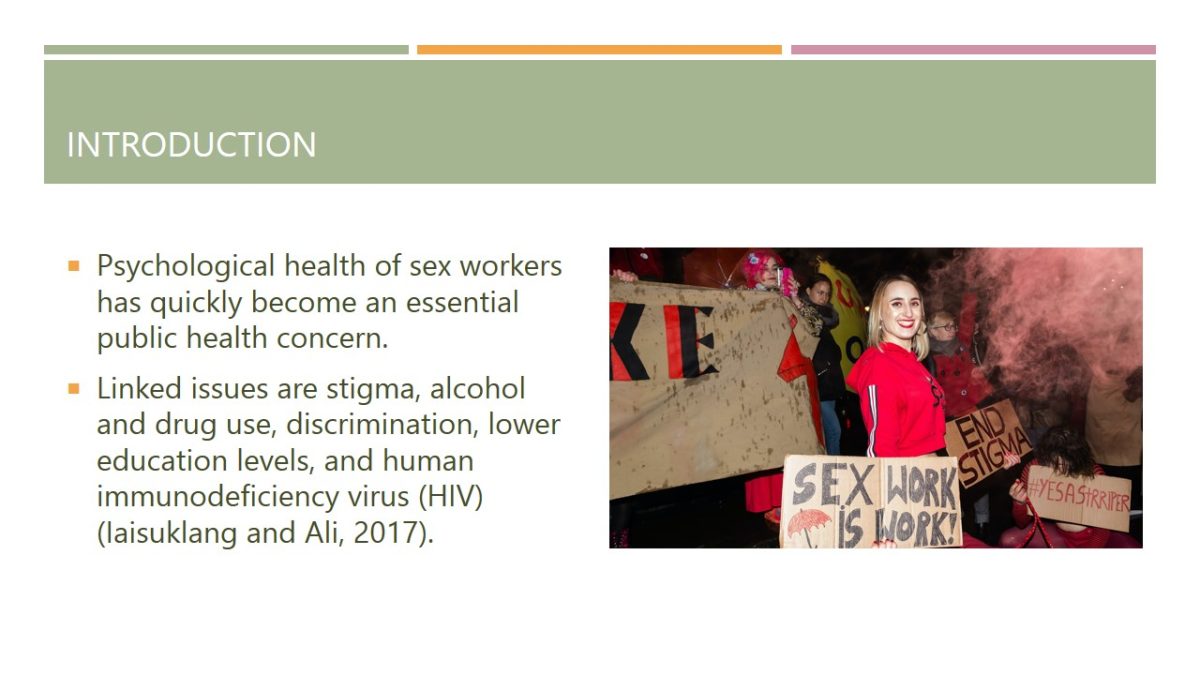
Importance of the Topic
- There are numerous secondary factors affecting health of sex workers.
- Prevalence of mental health issues could be addressed in a relevant way.
- Further policy-making could be generated with the help of increasing mental health awareness.
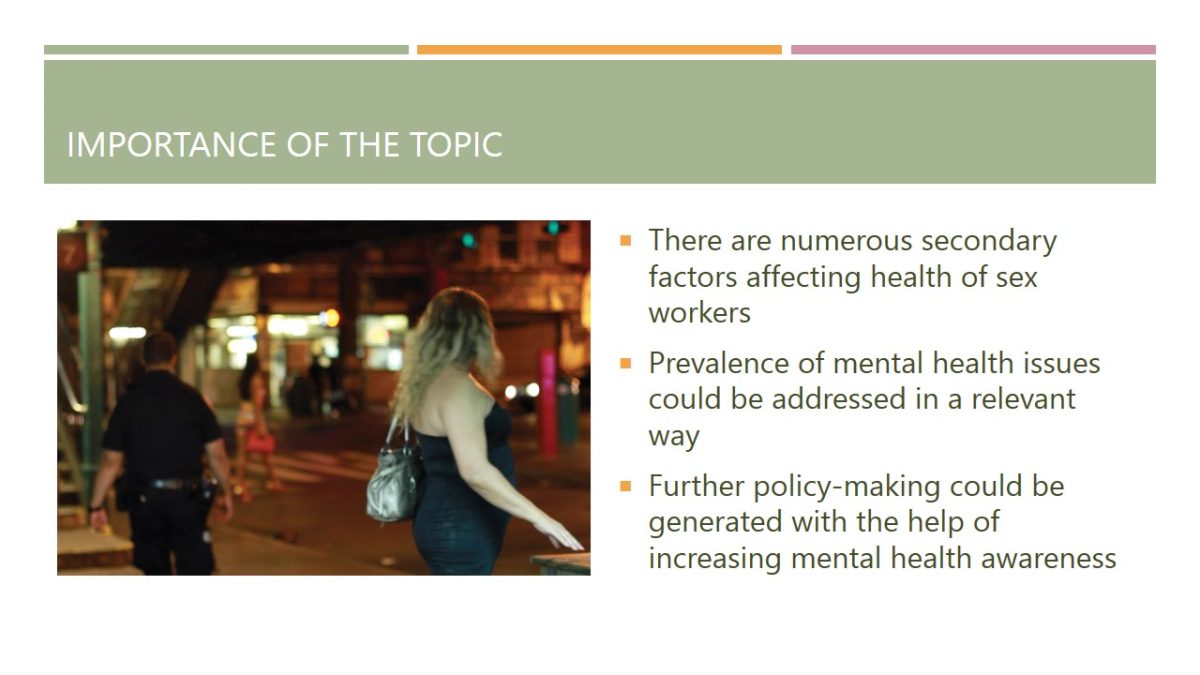
Vital Statistics
- Almost 98% of sex workers report significant difficulties when trying to find a more common job (Ma, Chan and Loke, 2017).
- Most of sex workers return to their initial occupation (Puri et al., 2017).
- There are financial needs that make the sex work industry one of the “to-go” choices for young adults in need of money (Lyons et al., 2020).
- At least 30% and 20% of sex workers experienced physical abuse during childhood or before the age of 18, respectively (Rayson and Alba, 2019).
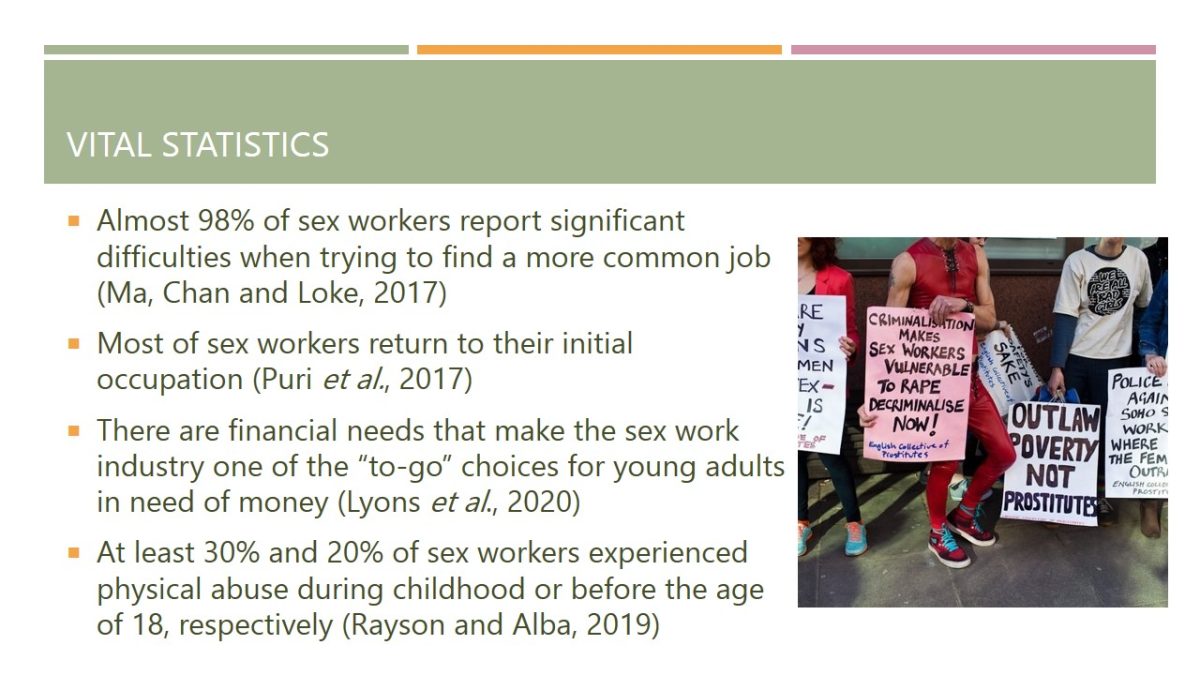
Most Common Sex Worker Risks
- There are numerous high-risk behaviors such as fear, threats, substance use, and customer violence (Sawicki et al., 2019).
- Higher unemployment rates and worsened socioeconomic conditions serve as the follow-up (Lyons et al., 2020).
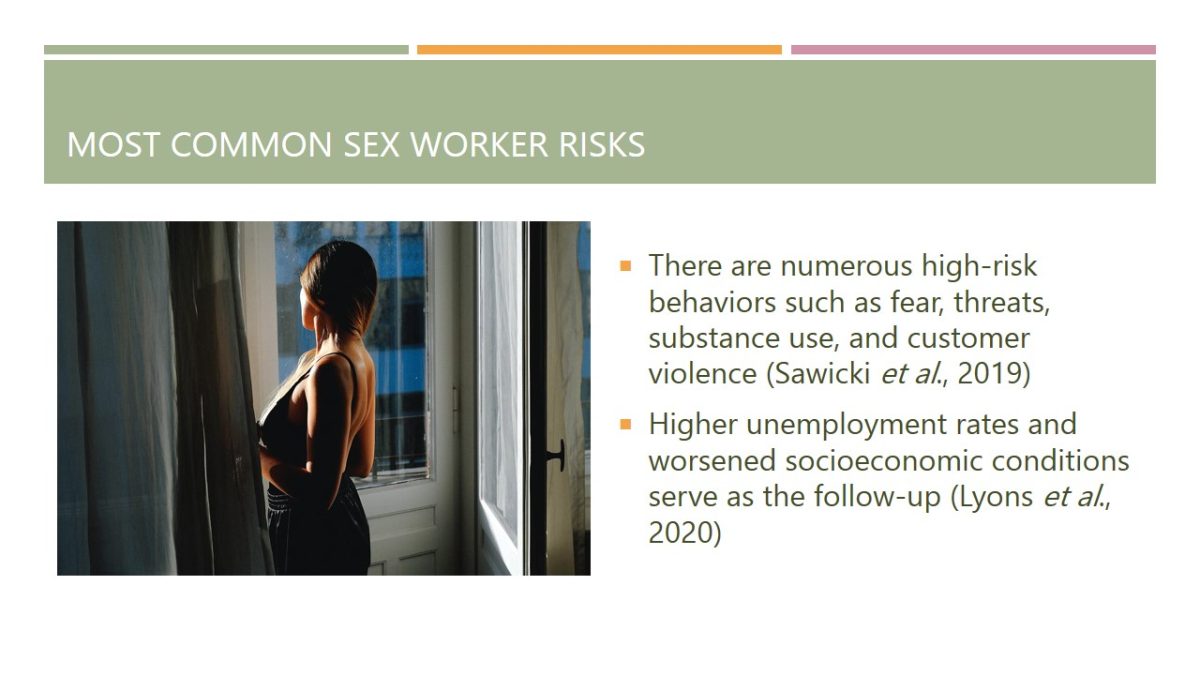
Reasons for Becoming Sex Workers
- Most individuals involved in sex work do not see it as exceptionally dangerous or damaging (Rayson and Alba, 2019).
- A ‘career’ in the field of sex work could be an attempt to escape the external negativity (Ma, Chan and Loke, 2017).
- Poor interpersonal relationships and a family history of abuse and neglect contribute to the person becoming a sex worker (Ranjbar et al., 2019).
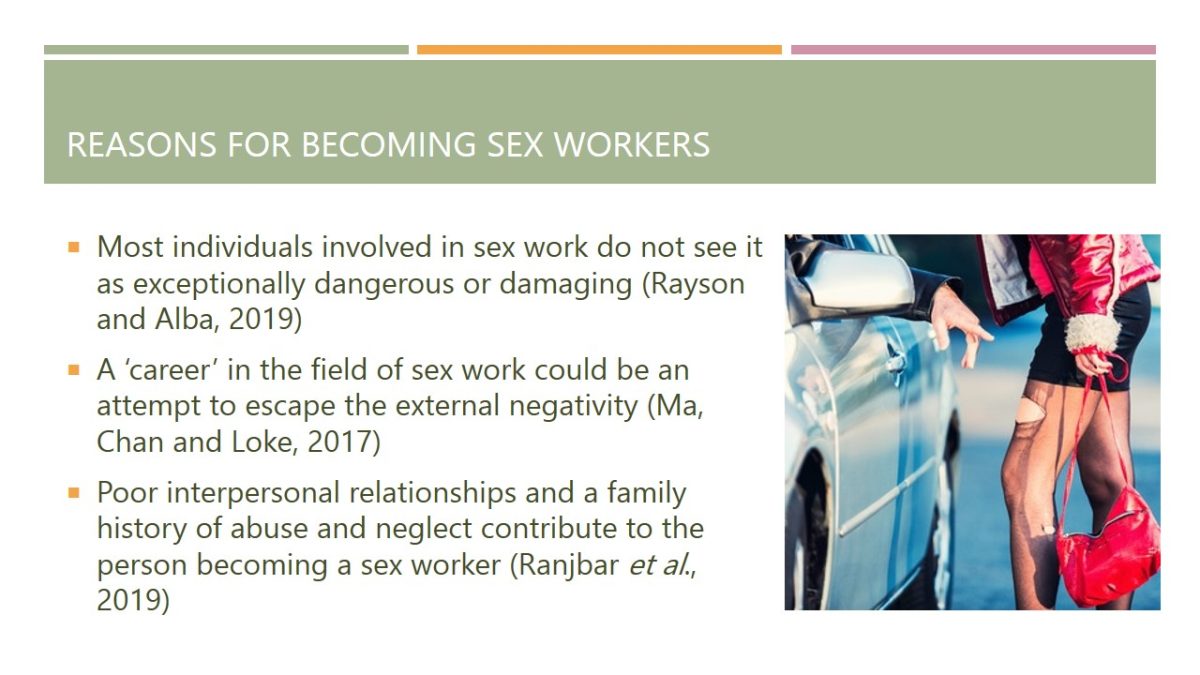
Working Conditions as a Predictor of Poor Mental Health in Sex Workers
- There is a lack of social support (Mo et al., 2018).
- The overt violence that revolves around sex workers defines the future of this profession (Aldridge et al., 2018).
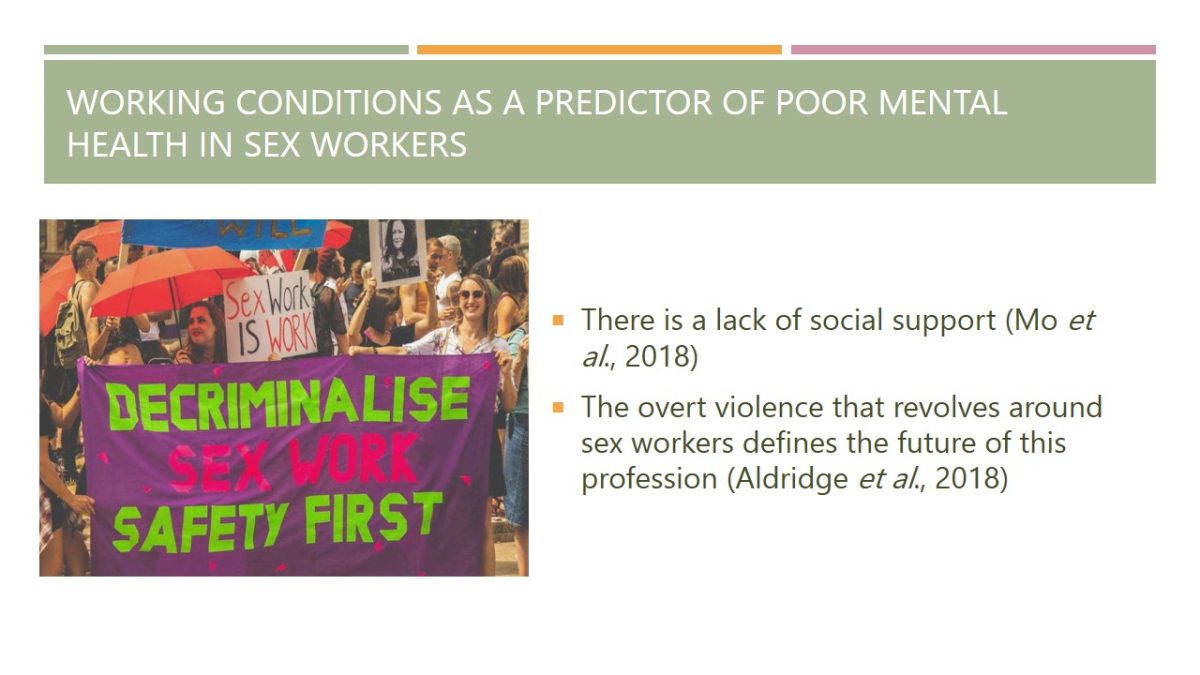
Identifying Sex Workers With Mental Health Issues
- It could be crucial to review the local market and assess all the possible extrapolations (Rayson and Alba, 2019).
- Even though sex work is legal in some countries, it does not reduce the burden or predisposition to mental health issues (Sawicki et al., 2019).
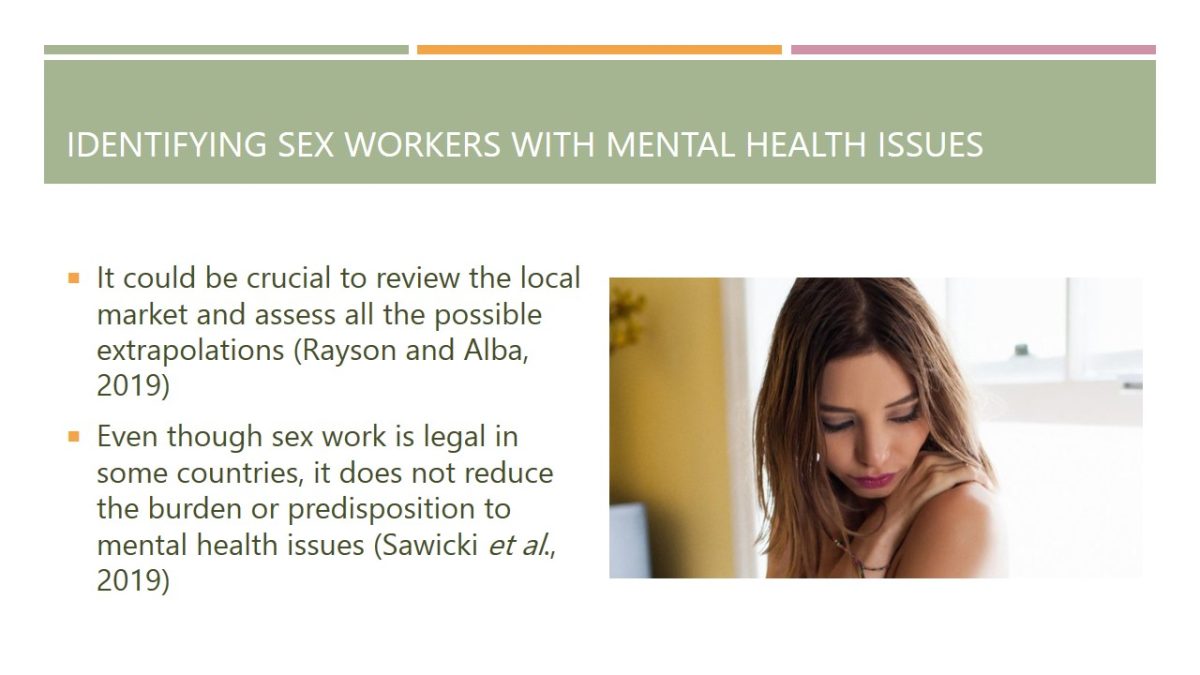
Are All Sex Workers Affected by Mental Health Issues?
- Not all sex workers are affected by psychological distress (Lyons et al., 2020).
- Some workers might encounter several mental health issues but they would never report them to anyone (Mo et al., 2018).
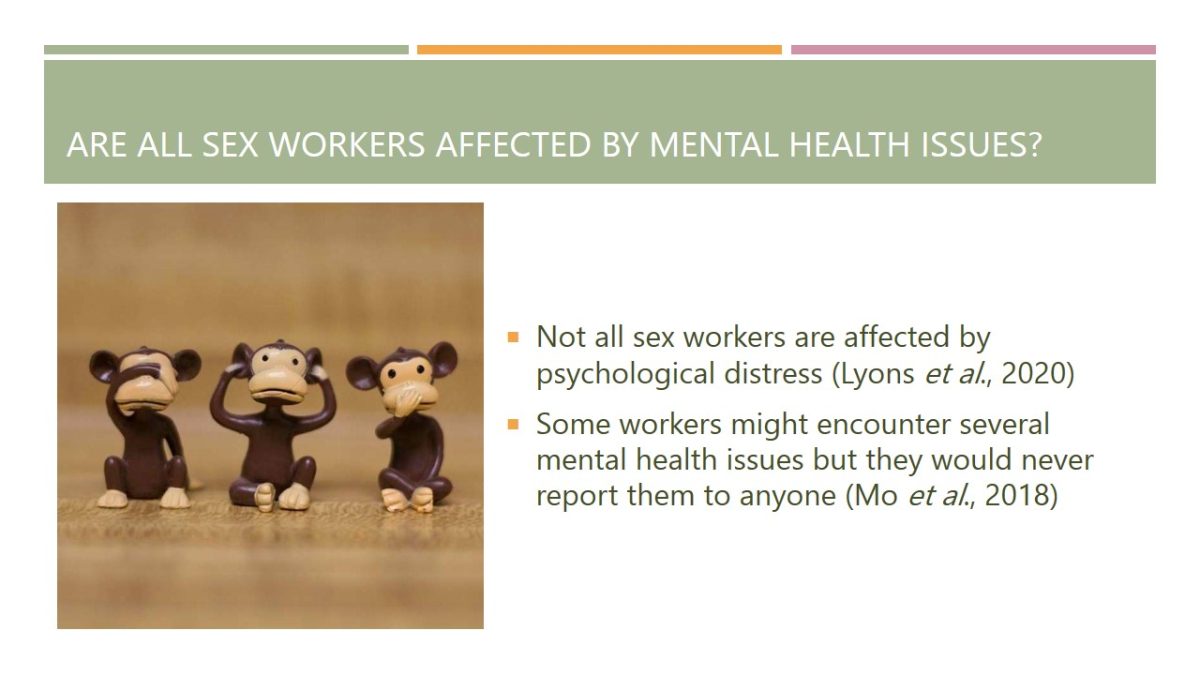
How Could We Improve the Environment?
- Complex transformations might be expected to approve of the fact that sex workers actually exist and have to struggle in order to restore their image within society (Ma, Chan and Loke, 2017).
- Without strong administrative measures, the government is not going to change the environment (Tschoeke et al., 2019).
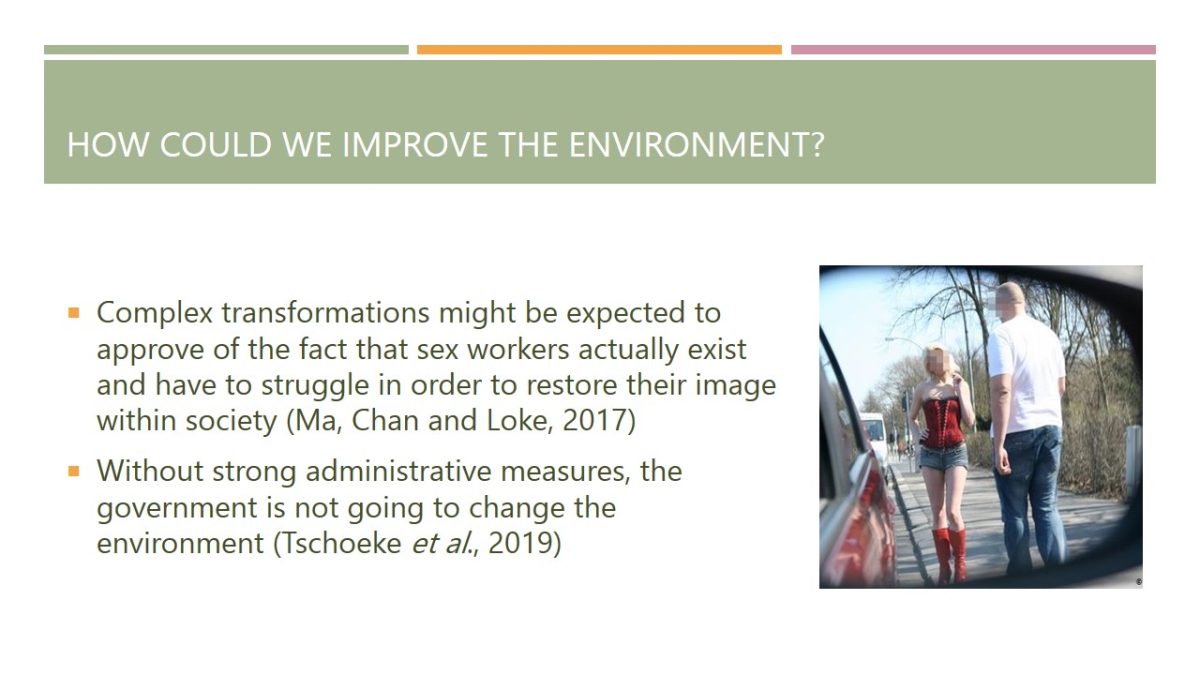
Conclusion
- Mental health issues truly exist and cannot be treated as a momentous health transformation;
- Mental health interventions yet have to be developed in order to create a prolonged list of possible ways of improving the existing state of affairs;
- Mental health of sex workers has to be researched longitudinally in order to gain more insight into causation and validate the possible improvements in the area.
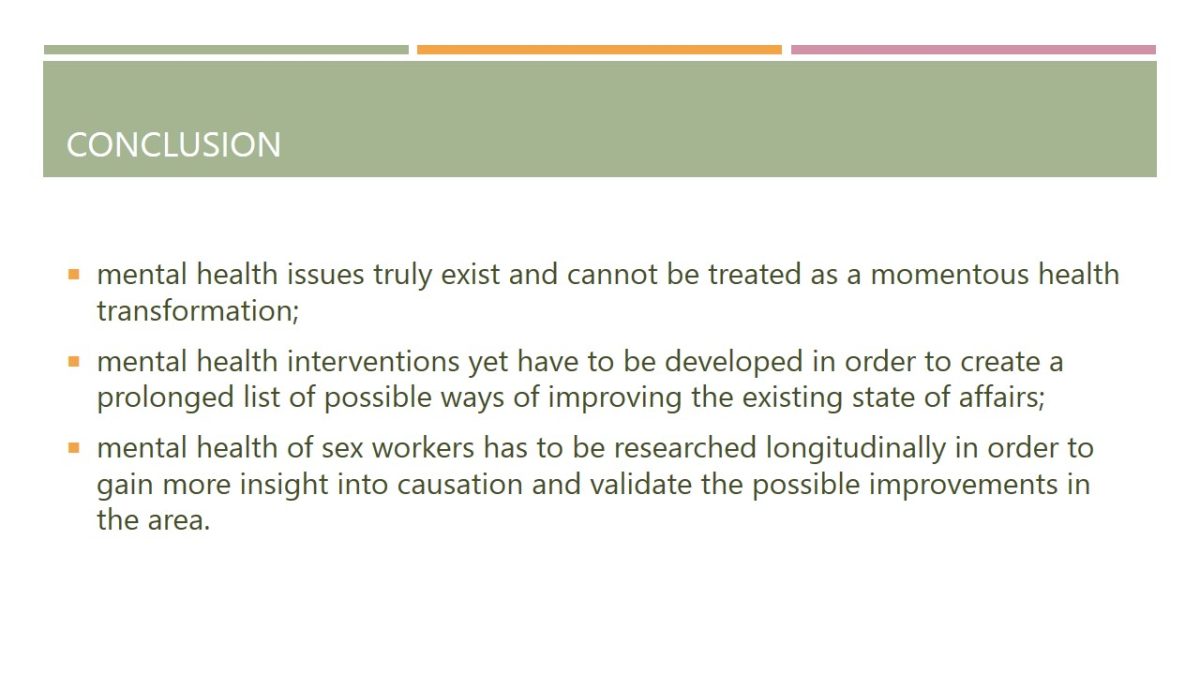
References
Aldridge, R. W. et al. (2018) ‘Morbidity and mortality in homeless individuals, prisoners, sex workers, and individuals with substance use disorders in high-income countries: a systematic review and meta-analysis’, The Lancet, 391(10117), pp. 241-250.
Iaisuklang, M. G. and Ali, A. (2017) ‘Psychiatric morbidity among female commercial sex workers’, Indian Journal of Psychiatry, 59(4), p. 465.
Lyons, C. E. et al. (2020) ‘The role of sex work laws and stigmas in increasing HIV risks among sex workers’, Nature Communications, 11(1), pp. 1-10.
Ma, P. H., Chan, Z. C. and Loke, A. Y. (2017) ‘The socio-ecological model approach to understanding barriers and facilitators to the accessing of health services by sex workers: a systematic review’, AIDS and Behavior, 21(8), pp. 2412-2438.
Mo, P. K. et al. (2018) ‘Threats during sex work and association with mental health among young female sex workers in Hong Kong’, AIDS Care, 30(8), pp. 1031-1039.
Puri, N. et al. (2017) ‘Burden and correlates of mental health diagnoses among sex workers in an urban setting’, BMC Women’s Health, 17(1), p. 133.
Ranjbar, F. et al. (2019) ‘Mental health status among female sex workers in Tabriz, Iran’, Archives of Women’s Mental Health, 22(3), pp. 391-397.
Rayson, J. and Alba, B. (2019) ‘Experiences of stigma and discrimination as predictors of mental health help-seeking among sex workers’, Sexual and Relationship Therapy, 34(3), pp. 277-289.
Sawicki, D. A. et al. (2019) ‘Culturally competent health care for sex workers: an examination of myths that stigmatize sex work and hinder access to care’, Sexual and Relationship Therapy, 34(3), pp. 355-371.
Tschoeke, S. et al. (2019) ‘A systematic review of dissociation in female sex workers’, Journal of Trauma & Dissociation, 20(2), pp. 242-257.